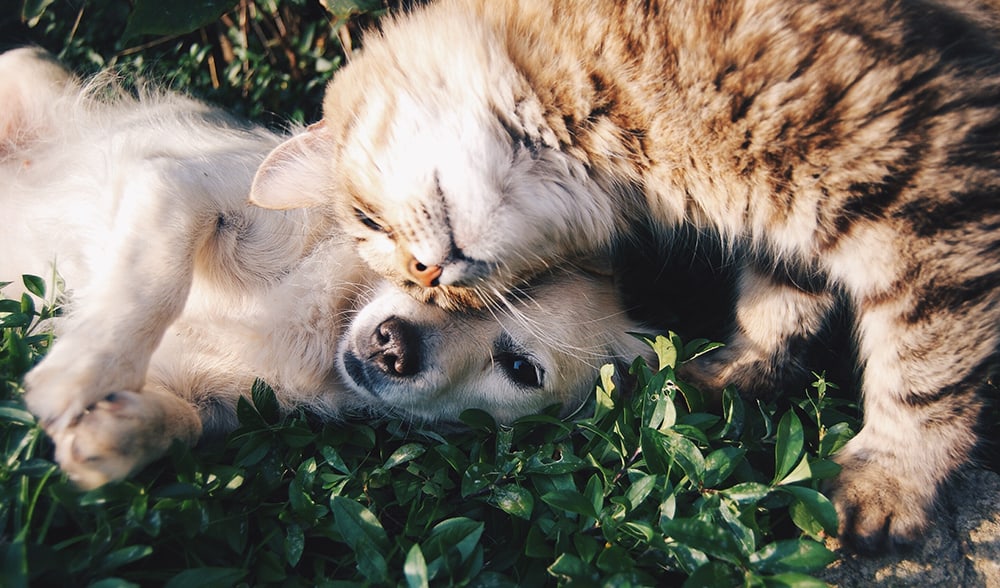Do you need Pet Insurance?
There’s no getting away from it, pet ownership is expensive. From dogs and cats, to rabbits and gerbils, guinea pigs, tortoises, snakes and hamsters (not in the same enclosure obviously), in the UK we love our pets, and pet insurance is an important part of looking after them.
Just like private medical treatment for humans, vet bills can be extremely high, even having your pet put to sleep can cost hundreds of pounds. Plus, there’s all the mischief they can get into on a daily basis – anything from eating things they shouldn’t, to getting lost or stolen, trapped inside things, fighting, cut paws, developing allergies or simply feeling unwell… the list is long! No one likes to see an animal suffer, and so finding the best pet insurance for your pet and your budget is essential.

How much does Pet Insurance Cost?
Whilst it’s impossible to give a ballpark figure here because all pets and insurers differ considerably, there are certain things that drive up the cost of pet insurance:
Clearly the greater the level of insurance, the greater the cost of pet insurance
Older pets cost more to insure because they are more prone to developing health conditions.
The cost of pet insurance differs dramatically depending on the pet you are insuring, for example exotic pets, requiring specialist care, will cost more to insure.
Sometimes it’s simply a matter of size; it’ll cost more to insure a Great Dane than a Chihuahua.
Depending on the insurer, certain breeds with a tendency for aggressive or defensive behaviour, or pets with a record of violence, can push up insurance costs.
Pedigree pets are more expensive to buy and more expensive to insure. Plus, some purebreds tend to have shorter lifespans than crossbreeds and can suffer from compounded aliments unique to their breeding lines, which in turn increases insurance premiums.
Types of Pet Insurance in the UK
Types of pet insurance differ in the UK depending on the insurer. Broadly speaking you will find insurers willing to offer the following types of pet policy:
Accident Only Insurance
This is the cheapest type of cover and doesn’t cover treatment due to illness or disease.
Lifetime Insurance
This type of insurance offers the greatest level of cover and as the name suggests, covers your pet for treatment during their lifetime.
Per Condition Insurance
Offering a similar level of cover as lifetime insurance, however each condition or injury will only be covered up to a set amount.
Time Limited Insurance
Similar to per condition insurance, time limited insurance will only pay out for a treatment resulting from injury or sickness for a set amount of time, for example 1 year.

What does Pet Insurance Cover?
Pet insurance packages can vary dramatically in the UK, making it all the more important to compare pet insurance policies carefully before signing up.
In general lifetime policies will cover vet fees and medical treatments resulting from illness and accident, as well as contribute towards the cost of finding a lost or stolen pet, dental treatment, behavioural or complementary treatments, liability costs and/or legal expenses, as well as the cost to have a pet put to sleep and cremation or burial costs. These are often subject to agreed limits, so be sure to check the small print!
Very often pet insurance will not cover routine check-up and regular treatments such as worming or de-fleaing, as well as preventative or behavioural treatments, existing medical conditions, castration or pregnancy, unless there are complications.
Pet Insurance – Useful FAQs
It’s possible to get insurance for all manner of exotic pets in the UK, however depending on the animal you may need a specialist policy.
No, each pet will need an individual policy, however some insurers will offer multi-pet discounts.
Yes.
Typically, insurers will not insure animals less than 2 months old. It is also usual for pet insurance terms to change once a pet reaches a certain age. Depending on your insurer this can be between 8 – 11 years for cats, and 5 – 9 years for dogs. After this age some insurers refuse or restrict cover whilst others increase costs and/or agree a percentage of the costs they will cover, leaving you to pay the rest.
It’s unlikely you will find a pet insurer willing to cover a pre-existing condition. If you do, chances are high it will be expensive.

